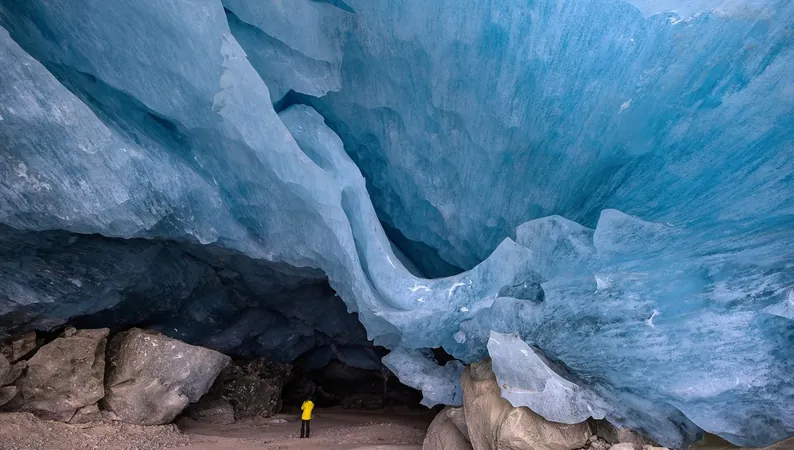
The Unbelievable Journey of Michel Siffre: How One Man in a Cave Revolutionized Biology!
2025-04-02
Author: Chun
Who Was Michel Siffre?
Born in 1939 in Nice, France, Siffre's academic journey took him to the prestigious Sorbonne. Yet, it wasn't until 1962 when his now-famous experiment began. Initially intending to study a glacier's geological properties for a mere two weeks, he decided to extend his stay to two months. But this was more than just an ordinary geological expedition—Siffre had a wild idea to completely disconnect from the outside world.
With no watches, sunlight, or timekeeping devices, Siffre descended about 130 meters below the earth's surface. The conditions were harsh: freezing temperatures and high humidity led to discomfort, with Siffre recalling that “my feet were always wet, and my body temperature dropped to dangerously low levels.”
The Groundbreaking Discoveries
What followed was extraordinary. Siffre stayed in the cave for 63 days, and upon returning, he uncovered something shocking: the human body's internal "clock" does not rely solely on external cues like sunlight. He experienced significant distortions in his perception of time—counting to 120, typically a matter of seconds, would stretch to five minutes in his mind!
Moreover, his internal biological clock began to stretch beyond the usual 24-hour cycle. Initial experiments showed his sleep-wake rhythms expanded to 24.5 hours, and later, during a second stay in the cave, he adopted an astonishing sleeping pattern that stretched up to 48 hours! "I would have thirty-six hours of waking followed by twelve hours of sleep," he explained, highlighting the bizarre alterations in his natural rhythm.
This phenomenon wasn't unique to Siffre. Others who followed in his footsteps reported similar anomalies, with one participant once sleeping for an unfathomable 33 hours! Such extreme instances raised questions about our understanding of sleep and the human circadian rhythm.
Pioneering a New Field
While his unconventional methods attracted criticism, Siffre’s contributions were monumental, essentially giving birth to human chronobiology. This field has crucial implications for modern science, including advancements in minimizing jet lag, improving sleep cycles for astronauts, and insights into how certain cancers might develop—all stemming from Siffre's trial in the darkness!
His findings piqued the interest of both the military and scientific communities during the Cold War. With countries racing to explore space and enhance military capabilities, understanding sleep patterns became essential. NASA even provided funding for more advanced analysis of Siffre’s pioneering experiment.
Legacy of a Cave Explorer
Unfortunately, Siffre's method is not easily replicated; those who have attempted similar underground experiments have often faced severe psychological and physical challenges. Nevertheless, Siffre believes that "Caves are a place of hope." He saw them as not only repositories for minerals and treasures but as realms for adventure, discovery, and the expansion of scientific knowledge.
So, the next time you hear about someone tackling the unknown, remember Michel Siffre—a man whose curious venture into a cave catalyzed a whole new understanding of biology, merging science with the thrill of exploration!


 Brasil (PT)
Brasil (PT)
 Canada (EN)
Canada (EN)
 Chile (ES)
Chile (ES)
 Česko (CS)
Česko (CS)
 대한민국 (KO)
대한민국 (KO)
 España (ES)
España (ES)
 France (FR)
France (FR)
 Hong Kong (EN)
Hong Kong (EN)
 Italia (IT)
Italia (IT)
 日本 (JA)
日本 (JA)
 Magyarország (HU)
Magyarország (HU)
 Norge (NO)
Norge (NO)
 Polska (PL)
Polska (PL)
 Schweiz (DE)
Schweiz (DE)
 Singapore (EN)
Singapore (EN)
 Sverige (SV)
Sverige (SV)
 Suomi (FI)
Suomi (FI)
 Türkiye (TR)
Türkiye (TR)
 الإمارات العربية المتحدة (AR)
الإمارات العربية المتحدة (AR)